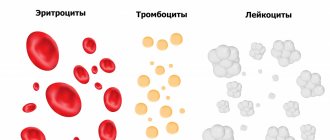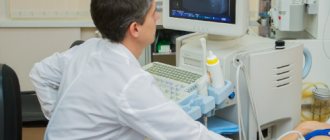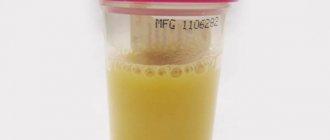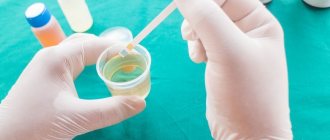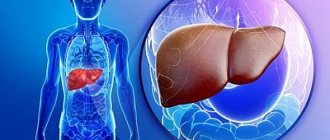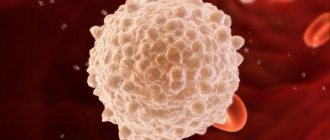Does alcohol affect urine analysis? Is it possible to drink products containing alcohol the day before taking a urine test? Before answering these questions, you should understand all the details. To determine a reliable diagnosis of the disease, you need to pass all the necessary bioassays. These include tests of urine and blood to determine the concentration of certain substances in them, after which it is necessary to obtain a medical opinion.
Despite the fact that modern medicine is rich in all kinds of ultrasound equipment, the above tests still have the same relevance as before. Every person knows that before undergoing tests you should not eat for several hours.
In this case, the result of the laboratory test will be more reliable. Then what about alcoholic products? Can I take it the day before the test? In medicine, there are some criteria on this issue.
How does alcohol get into urine?
To understand how ethyl gets into urine, you need to understand how alcohol moves inside the body. After a person has drunk alcohol, the following algorithm of actions occurs:
- When alcohol is ingested, it is absorbed into the intestines.
- After a short period, ethyl enters the blood and is absorbed throughout the body, permeating all cells.
- Circulating through the blood, ethanol enters the kidneys, where all toxins are processed and the body is cleansed. After which the remaining alcohol is removed.
When ethyl alcohol appears in the urine, its level in the blood decreases several times. Therefore, a general urine test for alcohol can show a 100% accurate result, even if there is a small amount of alcohol inside the person. In addition, the test results are also affected by the speed of the bladder. The better the kidneys work and the faster excrement is excreted, the less ethyl there will be. The strength of the drink also plays an important role.
Various types of alcohol and their effect on the body, composition of urine
Alcohol-containing drinks cause various diseases, as their exposure leads to the destruction of many organs. Ethanol is able to penetrate into all body fluids, but it persists longest in urine. Even if the blood test is negative, a small amount of alcohol in the urine can be diagnosed.
The strength of the alcohol consumed determines the time it takes for the body to process and remove toxic substances. But the timing of removing residual alcohol from urine varies from person to person. They are associated with physiological characteristics, as well as the state of metabolic processes.
Strong alcohol
It is customary to associate alcoholism with the consumption of strong alcohol-containing drinks, which include all types of liqueurs, rum, cognac and vodka. It is their influence that provokes a severe hangover, and also provokes alcoholic delirium or psychosis. This is due not only to a physiological attachment to alcohol, but also to psychological dependence.
It is known that the stronger the drink, the faster intoxication occurs and the more severe the consequences for the body. But in addition to strength, the following factors influence the decay time and presence of alcohol in urine analysis:
- the amount of alcoholic beverages consumed;
- body mass;
- individual characteristics of the body.
- age;
- floor.
Therefore, 40% vodka or cognac will be removed from the blood from 30 hours (with a weight of 60 kg) to 18 hours (with a 100 kg body weight). Moreover, residual indicators in urine will be diagnosed even a couple of days after a person drank strong drinks.
Beer and other low-alcohol drinks
Thanks to widespread propaganda, all types of light alcohol are considered not hazardous to health by consumers. Therefore, some people do not think about whether it is possible to drink beer before tests, considering it harmless. In reality, this is not the case, and even small doses can distort the results of the study.
The time it takes for alcohol to be eliminated from the body after drinking beer directly depends on the strength of the drink and body weight. Thus, traces of weak alcohol with a total strength of 4% in a person weighing 60 kg will be present for up to 3 hours, while for a person weighing 100 kg they will disappear in less than 2 hours.
Beer with a strength of 6% will be excreted from the body from 5 hours (at 60 kg body weight) to 3 hours (at 100 kg body weight).
Therefore, even a minimal amount of low-alcohol products can affect the concentration of urine. To minimize the impact of beer on laboratory test results, it is recommended to abstain from it for 2-3 days.
Blood test for sugar and alcohol
The concentration of glucose (sugar) changes throughout the day. It depends on the dishes that the patient ate on the eve of the analysis, as well as on a number of physiological factors. Alcohol has a direct effect on the liver, with insufficient enzymatic activity of which acute intoxication of the entire body is observed.
It is known that alcoholic drinks contain a large amount of carbohydrates, which are broken down into simple sugars, as well as calories. The table shows the average carbohydrate and calorie content for various types of alcohol.
| Drink (100 g) | Fortress, % | Carbohydrates (per 100 g) | Calories (Kcal per 100 g) |
| Vodka | 40 | 0 | 240 |
| Brandy | 0,7 | 220 | |
| Whiskey | 0 | 225 | |
| Cognac | 0,5 | 245 | |
| Punch | 30-35 | 25-30 | 260-280 |
| Liquor | 25 | 55 | 350 |
| Port wine | 20 | 15 | 170 |
| Vermouth | 15 | 20 | 160 |
| White wine | 12-13 | 0,5-10 | 65-100 |
| Red wine | 5 | 80 | |
| Beer | 4-6 | 3-5 | 50-65 |
To submit biomaterial for determination of glucose levels, the minimum interval without alcohol should be 48-72 hours. If results deviating from normal values are obtained, the analysis will be repeated 2-3 times. A one-time excess of the norm has no diagnostic significance, since it can be caused by a number of physiological reasons.
Read further: How long does alcohol last in a person’s blood (table)
Is it possible to get tested after drinking alcohol?
Alcohol negatively affects the composition of urine. Therefore, even a small dose of a toxin on the eve of taking tests can significantly affect the diagnosis, for the worse. Therefore, urine analysis and alcohol are completely incompatible things.
Based on the examination results, the urologist sees a complete picture of the patient’s health status. If there are any complications, a special course of treatment is prescribed, the duration of which can be from 6 to 14 days.
Before taking tests, the doctor is obliged to warn the patient that drinking alcohol the day before the tests is strictly forbidden. After all, alcohol has a very negative effect on urine analysis.
This is due to the fact that even a small dose of alcohol can have a bad effect on the diagnosis, that is, a laboratory test will show a distorted result.
Many people believe that 1-2 glasses of beer will not make a difference. After all, they don’t even cause intoxication, which means the results will be correct. But this is not true at all. Even if you drink a small dose of beer, the results will be questionable. This means that the specialist may prescribe the wrong treatment, and the patient’s condition may worsen.
Biochemical analysis and ethyl alcohol
A set of biochemical indicators allows you to evaluate:
- the functioning of the liver, kidneys, pancreas and digestive organs;
- state of protein, carbohydrate and fat metabolism;
- the degree of negative impact of the chosen treatment methods and medications.
Changes in the functioning of the enzymatic system as a result of exposure to alcohol lead to unreliable examination data. It should be noted that during a long-term drinking binge, two days is not enough for a person to remove alcohol and its breakdown products from the body. In this case, it is recommended to first undergo a detoxification procedure, which is aimed at cleansing the body of toxic products of ethanol metabolism. To obtain results that most accurately reflect the patient’s health status, a biochemical analysis should be taken no earlier than after 7-10 days.
How long does alcohol stay in the blood and how does it affect results?
Ethanol processing includes several stages. At the beginning, ethanol is absorbed into all cells, after which saturation with ethyl alcohol occurs. After entering the blood, the remaining alcohol circulates through the blood and is eventually excreted from the body along with excrement. After 7–10 hours, ethanol begins to oxidize.
An important role is played by the period during which a person takes alcoholic beverages. How long ethyl alcohol stays in the blood is also affected by a person’s gender, age and weight. The greater the body weight, the faster it will be eliminated from all organs.
Beer is completely eliminated 4–5 hours after consumption, champagne after 6–9 hours, and vodka, cognac, liqueur, wine and other strong drinks after 2–3 days.
Therefore, you should not drink two or three days before the test, as the final results may be inaccurate.
The kidneys are a paired organ that helps cleanse the body of all harmful substances. They, like a filter, clean the organs, blood and all harmful substances are removed along with excrement. When alcohol enters the bloodstream, the kidneys are overloaded with poisons and begin to work several times faster. As a result, twice as much fluid is excreted from the body, the level of urine and other significant indicators increases. Therefore, the results of the study can be considered incorrect.
How long does alcohol stay in the blood after beer?
The rate of ethanol breakdown after drinking beer depends on the physiological characteristics of each individual person. In men with greater body weight and good health, this process occurs faster. People with a thin build, suffering from chronic pathologies or alcohol addiction need more time to cleanse the body of alcohol.
The alcohol contained in beer is eliminated quite quickly due to the property of the drink to stimulate the kidneys. The sobering process is accelerated due to increased diuresis. But as a result of combining foamy drinks with stronger drinks, alcohol will circulate in the blood much longer.
A man weighing 80 kg who drinks 1 liter of weak beer will have alcohol in his blood for about 4.5 hours. When drinking 2 liters of beer, this time increases to 7 hours, and after 3 liters - to 9.5 hours. The body of a man weighing 65 kg will process this amount of alcohol an hour longer. The body of a woman weighing 60 kg will remove the alcohol contained in one liter of beer in about 5.5 hours.
Drinking beer
After ethanol is eliminated, its breakdown products will still be present in the body. And they can change test results. This is why drinking beer the day before donating blood can hardly be considered the right decision.
Is it possible to drink alcohol before donating blood?
Ethanol, which is contained in alcohol, affects the entire human body, changing the main characteristics of the blood. General and biochemical blood tests can be distinguished.
General (clinical) determines the parameters of blood cells (erythrocytes, ESR, leukocytes, platelets), hemoglobin level. Preparing for it is simple: take it in the morning on an empty stomach (do not eat 8 hours before the start), drink only water.
And the answer to the question whether it is possible to go for diagnostics after drinking a glass or two will also be unequivocal: it is impossible. Red blood cells are red blood cells responsible for transporting oxygen from the lungs and carbon dioxide into the lungs. Under the influence of ethyl alcohol, the membrane of red blood cells dissolves, after which they lose the ability to move, pushing away from each other. This causes them to stick together. In this case, the number of red blood cells decreases and hemoglobin decreases.
Biochemical analysis is the most complete. With its help, the functioning of internal organs and life support processes (glucose, bilirubin, cholesterol, lipids, total protein, uric acid and much more) are determined.
Before submitting, you must exclude:
- alcohol and alcohol-containing drinks per day and smoking per 1 hour;
- eating 12 hours before the test;
- drink only plain water.
And here a fun evening will come back to haunt you:
- glucose levels decrease, which is dangerous for people with diabetes;
- The level of uric acid, which is responsible for the removal of nitrogen, increases. The development of gout or arthritis can be diagnosed;
- the level of lactic acid (lactate) increases, and this is associated with diseases of the circulatory system;
- the level of neutral fats in the body increases, and these are atherosclerosis, ischemic heart disease, hepatitis, renal failure, cerebral vascular thrombosis.
There are tests that doctors recommend drinking a little before taking. In such cases, they warn the patient in advance. In all other cases, drinking alcohol must be stopped 2 days before, and in some cases 3 days before, or after this the diagnosis will give incorrect results.
The concentration of ethanol in 1 liter of blood is the concentration of alcohol in the body. Expressed in thousandths of volume (ppm). Knowing the ethanol content in the blood, you can determine the amount drunk and the time required to completely sober up.
This is important when driving a vehicle and working with machines and mechanisms.
Blood test methods for alcohol:
- enzymatic (rate of ethanol breakdown by liver enzymes);
- gas chromatography;
- Widmark method (oxidation reaction in a special flask).
Concentration (in ppm):
- up to 0.5 - sobriety;
- up to 1.5 – mild stage;
- up to 2.0 – average;
- up to 3.0 – strong;
- up to 5.0 – coma;
- above 5.0 – death as a result of poisoning.
The effect of beer on blood tests
Of course, everyone understands that only if there are reliable results, the doctor will be able to prescribe the correct treatment, which will lead to a speedy recovery. In case of rapid healing, the test results will signal positive changes in the body and will save us from further, now unnecessary, medications.
The bad thing is that therapists, when writing out a referral for tests, most often warn about in which cases blood should be donated on an empty stomach, and in which it is necessary to have breakfast. But there are other factors that can really distort the clinical picture. The most common “folk” case is alcohol.
Many people are interested in why they still shouldn’t drink alcohol before tests. The answer is quite simple. We will not delve into medical terminology or delve into the most complex chemical reactions, but will simply answer in a few words: alcohol significantly distorts the results. You are determined to get the most reliable results, which means there is no point in going to the laboratory after a “fun evening.” It’s better to postpone this trip for one or two days.
No matter how you deny it, something changes under the influence of alcohol:
- the concentration of lactate, uric acid and triacylglycerides increases;
- Blood glucose levels decrease.
Don’t just limit yourself to alcohol, but completely abstain 48-72 hours before taking the tests to be sure of their reliability.
Under no circumstances should you allow yourself to drink alcohol if you need to conduct a laboratory test for calcium, triglycerides, phosphorus, magnesium, aldosterone and androstenedione, cortisol, parathyroid hormone, insulin, as well as for the diagnosis of HIV, viral hepatitis B and C, and syphilis.
In addition, before conducting research, experts recommend avoiding stressful situations, physical activity, nervous strain, eating sweets (when determining blood sugar levels), and eating fried and fatty foods (when determining blood cholesterol levels). It is advisable to check with your doctor about such issues as eating in the morning and drinking water. For example, a biochemical blood test is performed exclusively on an empty stomach. No matter how it surprises you, sometimes it is even very important when you wake up. Sometimes experts put forward requirements to take tests no earlier than an hour after waking up. There is also a ban on smoking (you cannot smoke 1 hour before the tests). You should not drink a lot, as this will “dilute” the urine, and you should not take medications (exclusively in consultation with your doctor).
Is it possible to drink beer before taking a urine test?
Beer is an alcohol just like other alcoholic drinks. Therefore, its use can greatly affect the diagnosis. It is a mistaken belief that alcoholic drinks with low alcohol content have no effect on the body. Therefore, very often beer is consumed in large quantities, without fear of the consequences.
In fact, a large dose of beer creates an increased load on the liver and kidneys. Due to the large amount of fluid in the body, the kidneys work several times harder, because of this, not only toxins are eliminated, but also beneficial microelements.
Of course, one bottle of beer in the evening will not harm a person, but it is still not recommended to drink it before the examination. It is best not to drink for at least 1.5–2 days so that the results obtained are as accurate as possible.
The effect of alcohol on urinalysis
Alcohol puts a lot of stress on all organs. Tests done within 2-3 days after taking intoxicating drinks are considered unreliable. The more you drink, the more doubtful the test results will be. Therefore, alcohol also affects the general analysis of urine and is very negative.
CTI analysis (chemical-toxicological study)
CTI analysis helps to identify the concentration of ethyl alcohol and narcotic substances in excrement. Most often it is carried out in drug treatment centers on patients to identify drug addiction. Despite the fact that drug addicts can hide their addiction well, CTI analysis helps to accurately identify whether a person is addicted and what type of drug he is taking.
The test identifies the causes of severe intoxication. It is carried out in cases where it is not known whether alcohol is involved in the problem. The period for detecting alcohol use in a urine test depends on:
- residence time of ethyl in the kidneys,
- what kind of alcoholic drink did the subject drink?
- decoding indicators. It can be viewed using a special table of ethyl alcohol content in urine.
Drugs are completely eliminated from the body after 20–22 days. During this period, a chemical-toxicological study can reveal even the slightest concentration of toxins in the body. Ethyl is eliminated much faster, but still, for some time its remains can be found in the blood or excrement. Therefore, during an examination at a drug treatment clinic, there is a possibility that alcohol will be detected.
Preventing COVID-19 with alcohol: fact or fiction?
Fiction. Drinking alcohol does not protect against coronavirus infection! It does not affect the immune system in any way and does not reduce the likelihood of contracting COVID-19. On the contrary, alcoholic drinks weaken the body’s immune responses and reduce their ability to resist various infectious diseases, which equally include influenza, ARVI and COVID-19.
Ethanol in large quantities will not only not provide prevention, but will also lead to the development of acute respiratory distress syndrome (ARDS) and respiratory failure. These are the most dangerous complications that arise under the influence of COVID-19 and require the mandatory use of oxygen therapy.
Is it true. Partially, the idea that alcohol helps in prevention corresponds to reality. The fact is that alcoholic drinks (at a concentration of at least 60%) can be used to disinfect and treat both skin and various surfaces:
- phone,
- door handles,
- elevator buttons,
- railings and handrails,
- desktop, etc.
Otherwise, ethanol does not help in preventing or treating coronavirus infection. Avoid drinking if you plan to take tests. Alcohol consumption always leads to dysfunction of internal organs: kidneys, liver, lungs, heart and blood vessels. With excessive consumption, alcohol dependence develops. According to experts, the risk of developing alcoholism has increased significantly during the pandemic.
Is it possible to take it: preparation
In anticipation of a laboratory test of urinary fluid, in order not to find anything unnecessary, you should adhere to the following rules:
For accurate diagnosis and effective therapy, it is recommended to take blood and urine tests. Each person must treat these studies responsibly, observing all the rules. You should especially avoid taking any alcoholic beverages (beer, wine, vodka, etc.) before taking the test. After all, the further development of a problematic issue that can affect a person’s quality of life depends on the results shown.
Alcoholic drinks before blood and urine tests
Patients often ask whether it is possible to drink beer before taking tests . As a general rule, it is prohibited to consume any type of alcohol before testing. This prohibition is associated with the property of alcohol to change blood counts.
If a person drinks alcohol the evening before the examination, his blood viscosity will increase the next morning. The number of red blood cells and hemoglobin decreases, and the doctor may make a false diagnosis - megaloblastic anemia. In rare cases, if the delivery rules are not followed, the doctor may mistakenly make serious diagnoses - a malignant tumor, an allergic disease, hepatitis.
Red blood cells
Urine alcohol test
A urine test detects alcohol in the body. To determine whether there are alcohol particles in the body, several special tests should be performed. Most often, such tests are taken by vehicle drivers. Urine testing for alcohol is also carried out during doping control. Typically, testers help detect the presence of alcohol in the last 24 hours. In addition, such devices can detect the strength and amount of ethyl alcohol. Most often they are used by narcologists in a drug dispensary when examining a patient.
There are special laboratory tests that can detect the presence of ethyl alcohol in the urine.
A urine test will show alcohol, even if the person drank 2-3 days before the tests.
Today, test strips are most often used to detect alcohol in the body. The detection period is from 10 to 15 minutes when analyzing urine for alcohol. It is worth noting that the test may show a false result if the girl being tested is pregnant. A surge and abundant release of hormones can significantly affect the results of the study, since these indicators during such a period deviate from the standard norm.
When interacting with any test liquid, the test strip changes color. The shade can vary from pale yellow to bright green. Yellow color indicates the absence of ethyl in the body, and green, on the contrary, indicates the presence of this substance. The more saturated the color, the greater the concentration.
Nutrition before the procedure
The doctor applies a special composition to the area being examined, which acts as a conductor of ultrasound, places the sensor on the area of interest to the doctor, and begins examining the organs.
First, an ultrasound of the bladder is performed: the organ in an empty state is not visualized. After this, they look at the sections of the ureters, then go to the kidneys. To examine the second kidney, the patient turns over as recommended by the doctor.
At the doctor's request, the patient can breathe in and relax a little if the person being examined is nervous. During the ultrasound, the doctor takes several short breaks, which allow the specialist to record what he sees on the monitor.
For children, this procedure is performed after laboratory tests and if there are complaints of pain. In addition, there may be other indications. The need for this procedure in infants is determined by the pediatrician. Ultrasound is safe for children, so it can be performed in the first months of a baby’s life.
Preparation for an ultrasound of the kidneys and urinary tract should begin with a proper diet, which should be followed 3 days before the examination. At this time, it is necessary to consume only those foods that do not allow increased gas formation.
– Porridge cooked in water. It could be buckwheat, oatmeal, barley.
– Boiled meat, preferably chicken or veal.
– Steamed cutlets made from lean minced meat.
- Boiled sea fish.
– Unsalted and low-fat hard cheese.
- Hard-boiled egg.
– Dried or yesterday’s white bread.
For people who do not have problems with digestion, it is enough to follow such a diet for 3 days before performing an ultrasound of the kidneys. Preparation for the study for patients who have problems with the gastrointestinal tract should be carried out 7 days before the procedure.
– If a person has been given a referral for the morning, then it is most convenient to come to the hospital on an empty stomach. In this case, the last meal should be before 18.00. Dishes should be light and easily digestible.
This rule is mandatory for both men and women
Therefore, it is important to follow these recommendations so that the ultrasound scan is successful and the doctor is able to identify the problem. It is necessary to come to the procedure only after the person has drunk about 1 liter of water
– Preparing for an ultrasound of the kidneys in women and men in the afternoon involves an early breakfast. One hour after breakfast you need to take activated or any other sorbent. And do not forget that before coming to the procedure (1 hour before it), you need to drink about 1 liter of liquid.
Such an analysis helps to obtain a complete picture of any disease or to ensure that the patient does not have one.
It is important to note that before a person donates blood from a vein or finger, he needs to carefully prepare for this procedure in advance, since the procedure itself has some fairly solid rules, compliance with which must be mandatory. When to donate blood and what is needed for this? The most popular among modern doctors is a blood test called clinical analysis.
It, in turn, has its own specific varieties:
The most popular among modern doctors is a blood test called clinical analysis. It, in turn, has its own specific varieties:
- General blood test. Determines the level and presence of such important elements as leukocytes, platelets, red blood cells and much more. Its main task is the timely diagnosis of many groups of diseases of a hematological, infectious, inflammatory nature;
- biochemical blood test procedure. The purpose of the test is to qualitatively and reliably determine such important and necessary indicators as glucose levels and protein content. The analysis will also help to find out about disturbances in the functioning of vital organs (liver, kidneys, organs of the cardiovascular system). Accurately determines whether a person has urolithiasis;
- determination of the presence of allergens in the blood. Such an analysis will best help to timely determine the state of the entire immune system as a whole. The objective of such a study is to accurately determine the presence of an allergen to which the patient has an individual sensitivity. This is one of the most important tests;
- taking blood for hormone analysis. Will provide the necessary assistance in situations where it is necessary to clearly identify existing hormonal disorders. Therefore, before donating blood for hormones, you should undergo some preparation.
Alcohol removal table from urine
The following table shows how quickly alcohol leaves urine depending on a person's weight:
Person's weight/alcohol 60 kg 70 kg 80 kg 90 kg 100 kg Volume Beer 4% 0 h 35 min. 0 hours 30 minutes 0 hours 26 minutes 0 hours 23 minutes 0 hours 21 minutes 100 grams Beer 4% 1 hour 44 min. 1 hour 29 minutes 1 hour 18 minutes 1 hour 10 minutes 1 hour 03 minutes 200 grams Beer 4% 2 hours 54 minutes 2 hours 29 minutes 2 hours 11 minutes 1 hour 56 minutes 1 hour 44 minutes 300 grams Beer 6% 0 h. 52 min. 0 hours 45 minutes 0 hours 39 minutes 0 hours 35 minutes 0 hours 31 minutes 100 grams Beer 6% 2h. 37 min. 2 hours 14 minutes 1 hour 57 minutes 1 hour 44 minutes 1 hour 34 minutes 200 grams Beer 6% 4 hours 21 minutes 3 hours 44 minutes 3 hours 16 minutes 2 hours 54 minutes 2 hours 37 minutes 300 grams Gin and Tonic 9% 1 hour 18 min. 1 hour 07 minutes 0 hours 59 minutes 0 hours 52 minutes 0 hours 47 minutes 100 grams Gin and tonic 9% 3 hours 55 minutes 3 hours 21 minutes 2 hours 56 minutes 2 hours 37 minutes 2 hours 21 minutes 200 grams Gin and tonic 9% 6 hours 32 minutes 5 hours 36 minutes 4 hours 54 minutes 4 hours 21 minutes 3 hours 55 minutes 300 grams Champagne 11% 1 hour 36 min. 1 hour 22 minutes 1 hour 12 minutes 01h. 04 min. 0 hours 57 minutes 100 grams Champagne 11% 4 hours 47 minutes 4 hours 06 minutes 3 hours 35 minutes 3 hours 11 minutes 2 hours 52 minutes 200 grams Champagne 11% 7 hours 59 minutes 6 hours 50 minutes 5 hours 59 minutes 5 hours 19 minutes 4 hours 47 minutes 300 grams Port 18% 2 hours 37 minutes 2 hours 14 minutes 1 hour 57 minutes 1 hour 44 minutes 1 hour 34 minutes 100 grams Port wine 18% 7 hours 50 minutes 6 hours 43 minutes 5 hours 52 minutes 5 hours 13 minutes 4 hours 42 minutes 200 grams Port wine 18% 13 h. 03 min. 11 hours 11 minutes 9 hours 47 minutes 8 hours 42 minutes 7 hours 50 minutes 300 grams Tincture 24% 3 hours 29 minutes. 2 hours 59 minutes 2 hours 37 minutes 2 hours 19 minutes 2 hours 05 minutes 100 grams Tincture 24% 10 hours 26 minutes. 8 hours 57 minutes 7 hours 50 minutes 6 hours 58 minutes 6 hours 16 minutes 200 grams Tincture 24% 17 hours 24 minutes 14 hours 55 minutes 13 hours 03 minutes 11 hours 36 minutes 10 hours 26 minutes 300 grams Liqueur 30% 4 hours 21 minutes 3 hours 44 minutes 3 hours 16 minutes 2 hours 54 minutes 2 hours 37 minutes 100 grams Liqueur 30% 13 h. 03 min. 11 hours 11 minutes 9 hours 47 minutes 8 hours 42 minutes 7 hours 50 minutes 200 grams Liqueur 30% 21 hours 45 minutes 18 hours 39 minutes 16 hours 19 minutes 14 h. 30 min. 13 hours 03 minutes 300 grams Vodka 40% 5 hours 48 minutes 4 hours 58 minutes 4 hours 21 minutes 3 hours 52 minutes 3 hours 29 minutes 100 grams Vodka 40% 17 hours 24 minutes 14 hours 44 minutes 13 hours 03 minutes 11 hours 36 minutes 10 hours 26 minutes 200 grams Vodka 40% 29 h. 00 min. 24 hours 51 minutes 21 hours 45 minutes 19 h. 20 min. 17 hours 24 minutes 300 grams Cognac 42% 6 hours 05 minutes 5 hours 13 minutes 4 hours 34 minutes 4 hours 04 minutes 3 hours 39 minutes 100 grams Cognac 42% 18 hours 16 minutes 15 hours 40 minutes 13 hours 42 minutes 12 hours 11 minutes 10 hours 58 minutes 200 grams Cognac 42% 30 hours 27 minutes 26 hours 06 minutes 22 h. 50 min. 20 hours 18 minutes 18 hours 16 minutes 300 grams

